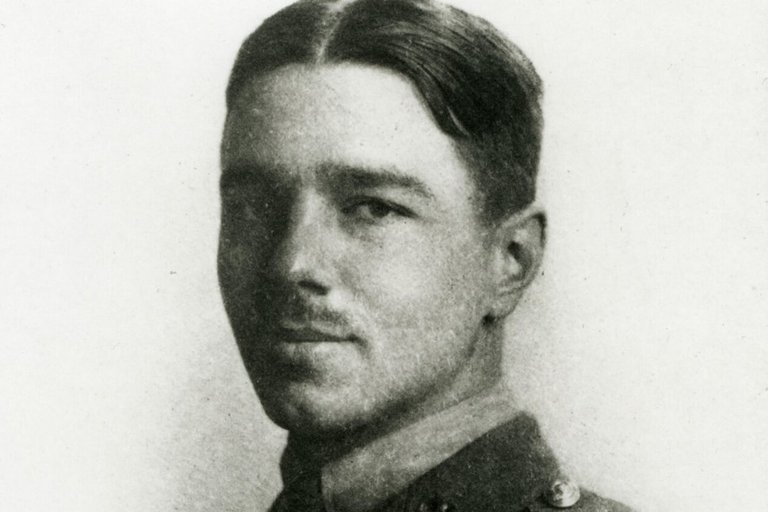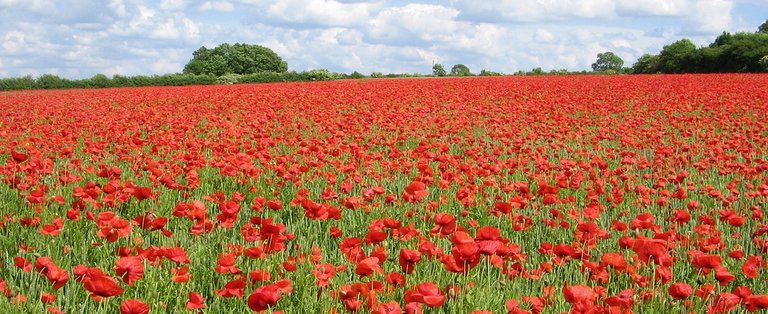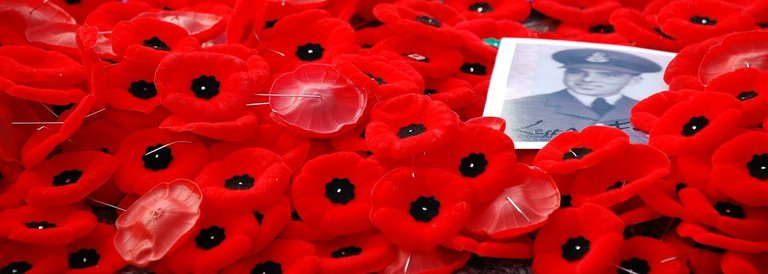Every November, I remember the 11th.
I watch for the time of 11am and I remember to think back…
The eleventh hour of the eleventh day of the eleventh month.
To remember the dead.
The fallen soldiers who have died for others. For their countries.
A waste for reasons often trivialised by time, particularly World War One. Agreements, Treaties, Posturing, and Vanity of Kaisers, Princes, and Kings. All hidden behind trite phrases such as Patriotism, for King and Country, the Motherland, the Fatherland! Lingering grudges and tribal hatreds, lust for land and power.
For the desires of Nobility, Royalty and Leaders, the Common Man must pay with their own blood. Little communities will be shattered, families torn apart and hearts broken.

Not only the death of soldier/victims but the grieving surviving families must struggle to carry on living, to feed and educate their young. The surviving but maimed must cope with not only physical handicaps but mental trauma and scarring not even acknowledged nor understood by many in their communities.
The First World War was when industrialisation was in its infancy. Terrible new weapons had been created, huge cannons and horrific machine guns, barbed wire, chemical gas, mines and even aeroplanes.
Tactics for generals had not evolved. They had no ideas how to advance against trenches. For the poor soldier, it was just “over the top” and charge machine guns while struggling through barbed wire. Attrition was final resort of mentally bankrupt military leaders.
Conditions in the trenches were beyond our understanding; Mud, Rats, Trench foot, Cold, Snipers, Boredom, Fear, Despair, Hunger and Cannon Shells, to name but some of the horrors.
Times had also changed for the soldier, no longer were they just uneducated peasants, especially the British soldier. There were scholars, doctors, poets and writers. These men on the front lines were a voice for the common soldier, the unheard soldier.
I have always loved history from a boy, but now I wonder why? History is primarily of conflict, particularly between huge armies. History vaunts men such as Napoleon, Wellington, Genghis Khan, Alexander the Great and Bismarck. Really? How great could these men be without the common soldier, often regarded as expendable. So I feel a tinge of shame when I think of the suffering of humanity, my enthusiasm for history and its great battles is now tempered with feelings of empathy for the lot of common man.

I have selected three poems from the First World War.
- Perhaps, by Vera Brittain.
- Dulce et Decorum Est, by Wilfred Owen
- In Flanders Fields, by John McRae
Perhaps, by Vera Brittain
(Dedicated to her fiance Roland Aubrey Leighton, who was killed at the age of 20 by a sniper in 1915, four months after she had accepted his marriage proposal)
Perhaps some day the sun will shine again,
And I shall see that still the skies are blue,
And feel once more I do not live in vain,
Although bereft of You.
Perhaps the golden meadows at my feet
Will make the sunny hours of spring seem gay,
And I shall find the white May-blossoms sweet,
Though You have passed away.
Perhaps the summer woods will shimmer bright,
And crimson roses once again be fair,
And autumn harvest fields a rich delight,
Although You are not there.
Perhaps some day I shall not shrink in pain
To see the passing of the dying year,
And listen to Christmas songs again,
Although You cannot hear.
But though kind Time may many joys renew,
There is one greatest joy I shall not know
Again, because my heart for loss of You
Was broken, long ago.
Dulce et Decorum Est, by Wilfred Owen

Bent double, like old beggars under sacks,
Knock-kneed, coughing like hags, we cursed through sludge,
Till on the haunting flares we turned our backs
And towards our distant rest began to trudge.
Men marched asleep. Many had lost their boots
But limped on, blood-shod. All went lame; all blind;
Drunk with fatigue; deaf even to the hoots
Of tired, outstripped Five-Nines that dropped behind.
Gas! GAS! Quick, boys! - An ecstasy of fumbling,
Fitting the clumsy helmets just in time;
But someone still was yelling out and stumbling
And flound'ring like a man in fire or lime ...
Dim, through the misty panes and thick green light,
As under I green sea, I saw him drowning.
In all my dreams, before my helpless sight,
He plunges at me, guttering, choking, drowning.
If in some smothering dreams you too could pace
Behind the wagon that we flung him in,
And watch the white eyes writhing in his face,
His hanging face, like a devil's sick of sin;
If you could hear, at every jolt, the blood
Come gargling from the froth-corrupted lungs,
Obscene as cancer, bitter as the cud
Of vile, incurable sores on innocent tongues, --
My friend, you would not tell with such high zest
To children ardent for some desperate glory,
The old lie: Dulce et decorum est Pro patria mori.
In Flanders Fields, by John McRae
In Flanders fields the poppies blow
Between the crosses, row on row,
That mark our place; and in the sky
The larks, still bravely singing, fly
Scarce heard amid the guns below.
We are the Dead. Short days ago
We lived, felt dawn, saw sunset glow,
Loved and were loved, and now we lie
In Flanders fields.
Take up our quarrel with the foe:
To you from failing hands we throw
The torch; be yours to hold it high.
If ye break faith with us who die
We shall not sleep, though poppies grow
In Flanders fields

The reasons for my selection are important to me.
The first shows the grief of the sweetheart left behind, the lingering years of pain to be endured.
The second shows the hatred and scorn for both the leaders and particularly the zealots who encouraged the youth to seek the glory of war and death. The Latin phrase means it is sweet and honourable to die for one’s country (Roman poet Horace).
The third was the poem which started the movement for Poppy Day, by a doctor in the Canadian Military.
I am saddened to see that there are those that regard the day as a reason to support war and the military establishment. This is dreadful reasoning, the original idea is to remember the ultimate sacrifice that so many made, on either side of conflict.
Interestingly enough, South Africa started the idea of a two-minute silence that became accepted in Commonwealth countries after the Great War, the first minute was observed for the fallen soldiers and the second minute for those affected families left behind.
Now time has passed, the old soldiers have passed on and new generations have arisen. No longer are the fallen fathers, uncles and grandfathers.
The noble dead have faded into the mists of time.
"Lest we forget" has become forgotten…
How very sad.

he poetry is impressive, brief but very meaningful. Poetry is a word that represents the mind and soul of each who wrote it. I love poetry because I am a poet. I will wait for every other beautiful poem tomorrow. Thank you @fred703
Great post. Indeed very sad that the lessons learned from WW1 and commemorated on Armistice Day are being forgotten. Before WW1 wars were seen by some as glorious events and the opportunity to cover yourself in glory...
Too true, I suppose the advent of modern media with many differing viewpoints gives people the opportunity to discern (although seeing all the media hysteria around Russia makes me wonder if the power of propaganda has lessened)
Nice poem, keep it up I am a poet too
thanks but I am not really a poet, I enjoy poetry a lot though.
Nice, you can check out one of my latest poems, i hope you like it
https://steemit.com/poetry/@innocey23/poem-love-me-some-me-aa00df1587442
nice poste
The future generation grows without patriotism, they do not want to know the history, they have other interests now, in which that part we are also to blame for this, we must necessarily teach the history of our homeland in schools and not one. Create circles, involve young people in everything that does it memory of our history.
agreed, not to be stooges to manipulators but to celebrate the aspirations of our forebearers
~ Why do I love this month? Because November is the month of thanks. My Language Arts teacher ever since Thanksgiving made us say a gratitude almost every day ...
Didn't expect to see something like this on Steemit, really good to see there's people out their that understand the importance of what history has taught us.
one of the most important things history ought to teach us is not to repeat the mistakes of our fore bearers. Sadly the one thing history teaches is that no-one really learns from history.
Indeed. I think this is because if you are not a generation directly effected by it becomes just a story to you. I was in the military for 7 years and was dumbfounded by the amount of people that wanted to go to war!
morons, look I understand the need to protect smaller nations and defenseless people, but generally unless there is an economic return, people are just left to suffer at the hands of aggressors
I applaud your laudable rememberance of heroes, most times people do not know what they are enjoying was being laid down by somebody.
And the poems you selected are emotional and sweet, it couldnt have been better
i will always support you man!!!
click here.Congratulations @fred703, this post is the seventh most rewarded post (based on pending payouts) in the last 12 hours written by a Superuser account holder (accounts that hold between 1 and 10 Mega Vests). The total number of posts by Superuser account holders during this period was 1307 and the total pending payments to posts in this category was $6580.31. To see the full list of highest paid posts across all accounts categories,
If you do not wish to receive these messages in future, please reply stop to this comment.